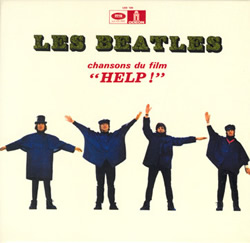Yet while early “race” records reinforced bad stereotypes about blacks, later jazz recordings helped bridge the gap between the two groups. From the 1920s, when the first recordings of black jazz artists appeared on records, through the rap music of the present day, sound recordings have transferred musical culture between these two groups. Records could be more effective than radio broadcasts (which began in the late 1920s) in disseminating culture between groups, because often the content broadcast via radio was controlled from by one or a small number of companies or government agencies. In the U.S., for example, a corporate oligopoly controlled most of the content that was broadcast, so the programming decisions they made were highly influential. For many years, authentic African-American culture was largely excluded. From a more global perspective, the mass production and distribution of Western music has been seen as a form of “cultural imperialism,” spreading not only music but with it, U.S. and European values to other parts of the world. Today, pop music icons are known the world over, and have frequently been criticized for the Western moral values that their music can convey. The flow of culture in the other direction has had an important but less dramatic influence in the West, as “world music” and other non-Western songs have gained some following.
(End)
